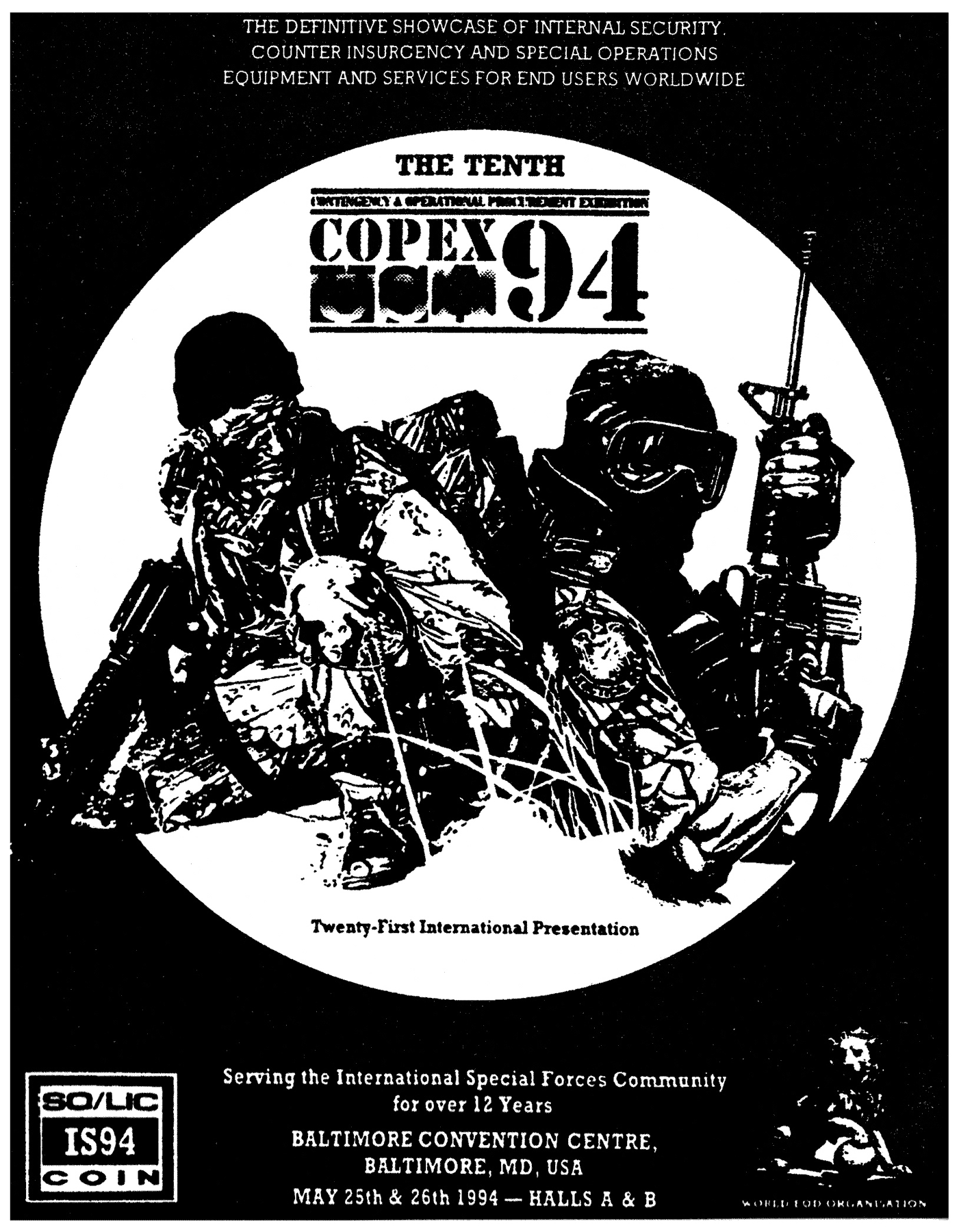
News Shorts and Other Busyness
Copex “Not An Arms Fair” Libel
Squall 12, Spring 1996, pg. 12.
An arms exhibitor has issued writs for libel against a number of peace campaigners and magazines who suggested the company displayed torture equipment.
The actions, against the Campaign Against the Arms Trade, Peace News, GreenLine and several individuals, follow a Channel Four Dispatches programme last year, called The Torture Trail, which claimed British Aerospace had a role in the export of electro-shock batons.
The government has since admitted that in 1993 it issued licences for electroshock batons to be traded between different countries through Britain. Amnesty International have described the batons as “the universal tool of the torturer”. They are illegal in the UK.
The programme questioned the role of a company called COPEX - Covert and Operational Procurement Exhibitions - who organise exhibitions at which weapons are displayed.
Exhibitors at COPEX have included Conjay Firearms and Ammunitions Ltd and Hiatts of Birmingham who exhibit handcuffs and other ironware. Hiatts have been implicated in the sale and export of ‘jumbo’ cuffs which importing countries allegedly adapt to leg irons.
Exhibitors in COPEX’s 1995 catalogue included manufacturers of sniper rifles, explosive detectors, tactical batons, armour shields, surveillance systems, wall and door breaching canons and CS gas dispersers, small arms, sub-machine guns and assault rifles.
Visitors to their exhibitions include representatives from the governments of China, Columbia, Iran, Indonesia, Sri Lanka, Algeria and Saudi Arabia. All have questionable human rights records.
The Campaign Against the Arms Trade suggested in its April ‘95 newsletter that supporters write to the manager of Sandown Racecourse, where a COPEX exhibition was due to be held in November ‘95, to protest. The newsletter alleged that the exhibition was a “market place for electro-shock batons and other torture equipment”.
A number of individuals who took up the suggestion are being sued for libel by COPEX, as are CAAT. The individuals include a 78-year old Quaker and an A-Level student.
The Esher Times, Sandown’s local paper, and the National Peace Council settled with COPEX out of court after running the story. They both apologised to COPEX and paid damages. The National Peace Council paid £3,000 damages and is now appealing for donations.
Action against the Sporting Life, which also took up the story because Sandown is a race course, was later dropped by COPEX, after the Sporting Life requested documents from Copex pertaining to the case.
Peace News, based in North London, and GreenLine, based in Cornwall, have been issued with writs after reporting on the libel actions against CAAT and the National Peace Council.
CAAT and GreenLine were unable to comment on the case when SQUALL approached them, although CAAT confirmed they would be fighting the action. Peace News, a pacifist paper launched in 1936 also said they would be fighting the action.
No action has been taken by COPEX against Channel Four because the Dispatches programme did not make any specific allegations concerning the sale of torture equipment.
Carl Meadows, a spokesman for COPEX, told Squall the action had been taken to protect the right to protest as well as the integrity of the company.
He said that the company did not exhibit anything itself but merely organised exhibitions, at which there are weapons, but denied any torture equipment was displayed.
“There are weapons at the exhibition, but of the total amount of exhibition space weapons amount to four per cent. Items such as shock batons have never been exhibited,” he said.
Mr Meadows added: “I’m a great believer in protest. But it relies on people getting the truth. If I were a member of CAAT I would expect CAAT to tell me the correct information. A letter writing campaign is a very valuable thing. But you have some responsibility.”
If successful the libel actions have obvious ramifications for protesters and pressure groups. A libel action is enough to sink a local newspaper, never mind a small organisation on a small budget. Action against individuals involved in letter writing campaigns could also remove one of the most powerful tools in any peace campaigner’s arsenal.
Related Articles
Arms Exhibitor Drops Libel Action - peace campaigners win court case against Copex - Squall 14, Autumn 1996
Police Expo On Security Hardware - an inside look at a secret trade show held in Manchester in July - Squall 14, Autumn 1996
Links
Campaign Against The Arms Trade - https://www.caat.org.uk
Peace News - https://www.peacenews.info
